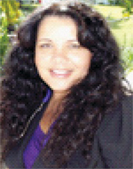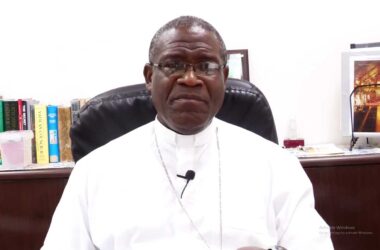
Q: Dear Regina, My sister had a stroke a few months ago. She had the typical one side of body weakness but is not fully recovered and I know she may never. I am noticing more things with her. She is starting to become agitated more and our family is having problems talking to her. She doesn’t always make sense. Is there a possibility that she is having some of the dementia symptoms? Her memory is not bad but little things are just not right. To me it seems to be getting worse not better. We have an appointment to see a doctor in two weeks for follow-up. I just want her to be comfortable and not so angry.
A: Her doctor may have more answers for you so it is good she will see him/her soon. Your sister may be experiencing a type of aphasia. This is a language disorder often caused by injury to the brain such as a stroke. Not all people with a stroke suffer with this but it is common. The ability to communicate is affected with this disorder.
With aphasia a person does not lose their intelligence but the ability to communicate the way you and I do. A few simple things we can do to communicate with them better is to keep it simple. Speak in short simple sentences. Your sister may become frustrated because she will stumble on words and doesn’t like this situation or is embarrassed by it. Be patient and allow plenty of time for a response. Talk with her and not for her. When helping her to communicate you can try writing, or use pictures and communication tools like a tablet or ipad. Repeat what you think she is saying to get a confirmation.
Aphasia does not mean dementia: however it is possible to be suffering with both from a stroke. Dementia symptoms from a stroke would impair her ability with her thinking like finding the right word for an item. An example would be describing the function of the item instead of naming it. Other areas of thinking may include judgment and problem solving known as high executive functions controlled by the frontal lobe of the brain.
It is best to keep that doctor’s appointment and be sure there are no other issues causing the increased changes you are seeing that may be reversible. If her changes are in relation to her stroke, then learn all you can about strokes and vascular dementia so you can best support your sister and do not forget support for yourself.
Q: Dear Regina, I want to ask about one of the dementia symptoms regarding spatial awareness. Can you give us more details on this?
A: Spatial Awareness is difficult to explain. Let me start with people you may see who are stumbling or having trouble with walking with ease or bumping into things and looking confused about the next step. Someone might mistake them for a drunk. But if you understand what spatial awareness is you will look for those clues: for example,: a person stumbling – and your first thought is that person is drunk. Pay attention and look to see if the person seems confused about where they are walking.
They may try to reach for things and can’t get it. This is because patterns of objects next to other patterns start to blend and become distorted and dark area appears to be really deep holes and people affected with spatial awareness will avoid going into or stepping into a dark hole. This is why some facilities will use a black mat if they want to keep a person with dementia from wandering into a particular door way. They will not cross it. They may stare for a while trying to figure where they can make their next step. A non-dementia person usually looks confident but still cannot get it together with the smallest things.
Another common area with spatial awareness is the mirror. The person that is affected by spatial awareness will see their own reflection as a stranger in the mirror. The reactions of the other person in the mirror will vary. They become afraid of the person in the mirror and will be very distressed about it or they enjoy the other person in the mirror and you will find them having conversation with themselves.
The ability to understand your own self and your place in the space you are in is spatial awareness. Understanding objects in relationship to yourself in that given space and also being able to understand the relationship of these objects when there is a change in position.
Send your questions or stories to share to angelsofthewest@outlook.com orwhatsapp 486-4509



![Simón Bolívar - Liberator of the Americas [Photo credit: Venezuelan Embassy]](https://thevoiceslu.com/wp-content/uploads/2025/12/Simon-Bolivar-feat-2-380x250.jpg)







I would caution individuals wishing to obtain critical medical information to consult a medical physician, someone with the initials M.D after their name, denoting that they have completed 4 years of undergraduate study, 2-4 years of medical school, 2 or more years of residency in a structured medical setting, and specialised information/experience in their field.
It is dangerous to accept medical information from inadequately qualified individuals – if you wish to do so please also share the information you were given with your medical physician.